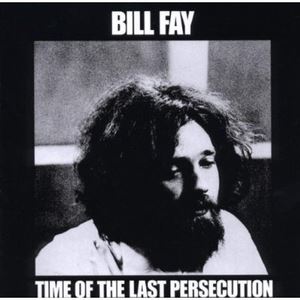
Don’t Let My Marigolds Die歌曲歌词:
Please don’t take the sun from the sky
Don’t let them damage my eyes
Please don’t let my marigolds die
Though I well know they’re not mine
Hey don’t let no one get you down
Hey don’t let no one get you down
Please don’t let the rain blow away
Let it be there ’til the day
When the city’s a museum and a rat is a friend
On the pavements of iron let the grass grow again
Please don’t take the sun from the sky
Don’t let them damage my eyes
Don’t Let My Marigolds DieLRC歌词下载地址:
Bill Fay简介:
by Richie Unterberger
Obscure British singer/songwriter Bill Fay made a couple of albums in the early ’70s that matched Dylanesque songwriting with unusual arrangements. Fay had actually done his first single, “Some Good Advice”/”Screams in the Ears,” for Deram back in 1967, produced by early Donovan co-manager Peter Eden. The single introduced his characteristic downbeat melodies and scrambled impressionistic lyrics, though with somewhat more pop-oriented production and melodies than those heard on his albums.
It wouldn’t be until 1970 that his self-titled debut appeared. Bill Fay is an odd and not particularly good record, in large part because his songwriting has the obvious ambition of song-poets like Bob Dylan and Leonard Cohen, but not nearly as much talent. His hoarse, thin singing is also obviously Dylan-influenced, but like fellow Dylan acolyte David Blue, he had the tendency to go distressingly off-key. There was a bit of the British lilting storytelling style to his songwriting, in the path of Al Stewart, Donovan, and Nick Drake, but these traits were far subordinate to the inchoate Dylanisms. Twee orchestral arrangements figure strongly on the record, as if to cover up for some of the artist’s vocal deficiencies. His second LP, Time of the Last Persecution (from 1971), was similar in its songwriting, but far more straightforward and rock-oriented in its production, and more conventionally accomplished in its vocal delivery. Though still not noteworthy, it was definitely better than its predecessor, and sometimes enlivened by unexpectedly gnarly rock guitar.
